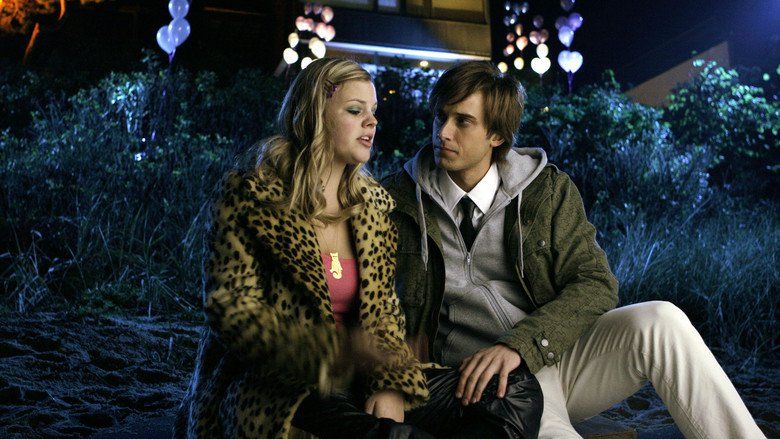Table Of Content
- Storyline
- Director Charlotte Sieling and Actress Trine Dyrholm on Historic Nordic Mystery ‘Margrete: Queen of the North’
- Blue Ivy joins mom Beyoncé in ‘Lion King’ prequel ‘Mufasa.’ Can you feel the love?
- Margrete: Queen of the North ( Stream and Watch Online
- Related articles
- Charlotte Sieling and Trine Dyrholm on Margrete: Queen Of The North
- Production

On the other hand, her monarchical rationality questioned if he was merely an impostor sent to her doorsteps to disrupt a sought-after alliance with England. Dyrholm, whose credits also include Susanne Bier’s Oscar winner “In a Better World” and May el-Toukhy’s “Queen of Hearts,” toplines as Margrete the First, who is considered the most powerful ruler in Scandinavian history, as she gathered Denmark, Norway and Sweden into a peace-oriented union. Too bad that the same cannot be said for the film as a whole. While the basic outline of the story is intriguing, the screenplay by Sieling and co-writers Maya Ilsee and Jesper Fink never quite figures out how to make it compelling in cinematic terms. Outside of Margrete herself, the other characters have not been developed especially well, and it becomes hard to work up much interest in all of the intrigues and betrayals on display.
Storyline
Cinema creates a safe space where borders are broken down and the emphasis on political, cultural, and economic divisions are neutralised. It also offers sanctuary from a society that’s seeing a rise in individualism and nationalism. In conversation with PopMatters, Sieling and Dyrholm discuss reinvigorating the clichés of the middle ages to tell a modern story out of the past. Throughout, both the character and the film constantly keep one guessing as to whether Margrete’s driving impulse leans more in the direction of the maternal or the Machiavellian. Sieling maintains an equally firm handle on the potent material, but it’s the title performance by Dyrholm that makes it sizzle.
Director Charlotte Sieling and Actress Trine Dyrholm on Historic Nordic Mystery ‘Margrete: Queen of the North’
Because moviegoing carries risks during this time, we remind readers to follow health and safety guidelines as outlined by the Centers for Disease Control and Prevention and local health officials. With a big budget by Scandinavian standards, “Margrete – Queen of the North” marks the first biopic movie about Margrete the First, a woman ahead of her time who sacrificed herself completely for her vision and for her countries. “Margrete -Queen of the North” is one of the titles set to be presented in the work in progress section at Goteborg’s virtual Nordic Film Market. And then one thing we definitely agreed on was that we couldn’t cheat in terms of the time. I didn’t know so much about my hair and makeup woman [AnnaCarin Lock], I didn’t know she was a nerd about braiding.
Blue Ivy joins mom Beyoncé in ‘Lion King’ prequel ‘Mufasa.’ Can you feel the love?
It’s a sequence that, along with the portrayal of the dignified Queen, proudly locates a precursor to the region’s modern-day reputation for progressiveness in terms of gender equality and women’s rights, all the way back in the 14th century. During the feast to welcome the English party to Kalmar, the Norwegian magnate Asle Jonsson tells Margrete that en route to Kalmar he met a man who had come from Graudenz (in Prussia) and claims to be Oluf, Margrete's son. Oluf had as a child been king of both Denmark and Norway, but had died suddenly at Falsterbo fifteen years previously (i.e. in 1387).
This first premiered at the Norwegian Film Festival, and opened in Denmark in September. Goldwyn Films releases Margrete - Queen of the North direct-to-VOD in the US on December 17th, 2021. Much of this emotional tug-of-war is played out in atmospherically lit indoor compositions, which evoke a painterly, classical feel. What elevates the film from a run-of-the-mill period drama is Trine Dyrholm’s masterfully understated performance as the tormented queen. Her Margrete has no need to shout and weep to convey her turmoil; a mere gaze is enough to articulate the dilemma of having to put collective needs over personal desires.
Nordic Film Market at Goteborg: Hans Petter Moland, Runar Runarsson, Charlotte Sieling, Daniel Espinosa, Klaus Haro Make the Cut (EXCLUSIVE) - Variety
Nordic Film Market at Goteborg: Hans Petter Moland, Runar Runarsson, Charlotte Sieling, Daniel Espinosa, Klaus Haro Make the Cut (EXCLUSIVE).
Posted: Mon, 15 Jan 2024 08:00:00 GMT [source]
However, just as Margrete is about to slip out of the castle to rendezvous with Oluf and Asle, Jakob Nilsson arrives to see her, newly returned from his escapade in Prussia. Realising that Scandinavian unity is more important in the face of the Teutonic threat than her personal feelings, Margrete betrays Oluf, who is quickly recaptured by Erik's men. Margrete manages to persuade Erik to spare Asle, but Oluf is publicly burned alive as a traitor in front of his mother.
Forty years later, and Margrete, now queen, has successfully united Denmark, Norway and Sweden under her rule, thereby founding the Kalmar Union and bringing a decade of peace to a region hitherto wracked by constant warfare. It was one of the largest productions in the history of Danish cinema, enjoying the largest budget ever for a Danish-language feature film.[4][5] It premiered on 16 September 2021. As we age, the emotions a character experiences, such as pain, joy, hope, and despair resonate more strongly with us. Whereas to our younger selves, these were simply dramatic concepts. This makes the experience of watching films uncomfortable because we sense and identify with realism. But her reign also saw a bizarre mystery in the Scandinavian region, which forms the emotional beating heart of this stately film.
Charlotte Sieling and Trine Dyrholm on Margrete: Queen Of The North
While the plot is at times overstuffed with palace intrigues, this piercing character study carries a contemporary poignancy, as it encapsulates the difficult choices a female leader has to make in a world bounded by patriarchal control. Unlike, for example, Game of Thrones, this story has very real and accurate historical locations. How does one go about in getting this part as right as possible, some six centuries later?
As an adult I’ve thought about the usefulness of a monarchy in a modern age, if any. But on New Year’s Eve, when the queen reads her annual speech, I am moved. That Margrete I was a uniting force is beyond doubt, but our Margrete II is also someone we can gather around, an important part of our collective identity as Danes and something that tells us who we are.

To further stabilize the new Union’s position in Europe, Margrete has negotiated the betrothal of Erik to Philippa, the 13-year-old daughter of the King of England. She arrives at court along with rakish diplomat Bourcier (Paul Blackthorn), who has been sent to negotiate the terms of the marriage. But that very same night, reports run rife through Margrete’s lavish welcome party that a man claiming to be Margrete’s son Oluf, thought to have died some 15 years prior, has suddenly shown up nearby and the Norwegian emissary has already recognized him, and not Erik, as the rightful King. Margete has the man (Jakob Oftebro) summoned and denounces him as a liar in front of the court. It doesn’t help that after a tantalizing glimpse of a body-strewn battlefield that teases a more action-packed narrative than is delivered, the film quickly settles into a more sedate rhythm, establishing the wise statesmanship of Queen Margrete (Trine Dyrholm).
The roles include Ophelia in Shakespeare's 'Hamlet' and Esmeralda in Victor Hugo's 'The Hunchback of Notre Dame'. Her roles in film and TV include the Swedish mini-series 'Rosenbaum' (1993), Jon Bang Carlsen's 'Carmen & Babyface' (1995), Carsten Sønder's 'Love, don't love (1995), and Jørn Faurschou's 'Dangerous Friendship ' (1995). This led her to apply to the Danish Film School, where she graduated as a screenwriter in 1995.
By the time "Margrete" gets to its grand finale, what should have made for a shocking and powerful moment will inspire little more than a shrug from most viewers. Aside from the design departments, the craft MVP here is probably DP Rasmus Videbæk, whose magisterial camerawork makes the candlelit interiors feel as imposing as the sweeping landscapes, to the accompaniment of Jon Ekstrand’s elegant, classical score. But the very magnificence of the whole production, from its smorgasbord of Nordic acting talent to its self-conscious lionization of a remarkable woman wielding immense power within an otherwise suffocatingly male environment, also serves a more contemporary agenda. At one point, Margrete rescues a young woman, Astrid (Agnes Westerlund Rase) and pointedly reminds the pirate who captured her that rape is a hanging offense.
SF Studios is planning to release the film during the third quarter of this year. Dyrholm stars opposite Søren Malling (“The Investigation”), Morten Hee Andersen (“Ride Upon the Storm”), Jakob Oftebro (“Kon-tiki”), Bjørn Floberg (“Out Stealing Horses”), Magnus Krepper (“Queen of Hearts”), and Thomas W. Gabrielsson (“A Royal Affair”). We're looking forward to Cannes and the Muslim International Film Festival. The girl (Nicole Rosney) with the big concerned eyes, dirty face, and crown on her head will become Margrete (Trine Dyrholm), creator of the Kalmar Union, which lasted for 126 years and braided together Denmark, Norway, and Sweden in unprecedented peace.
It is implied that, with Scandinavian unity restored, the Teutonic Order calls off its planned invasion. Margrete eventually has a flash of inspiration and realises that the Man from Graudenz's story about an attempt on his life might be the root of the rumours that she had her son killed. She never gave any such order, and there is only one other person who would have had the authority to do so in her stead. She confronts Peder, who admits that he ordered Oluf's retainer to murder him and explains that he acted for the greater good, as Oluf would never have been an acceptable ruler for the Swedes in the way Margrete has been. It was therefore necessary to get rid of Oluf so that Margrete could retain power in Denmark-Norway and then take control of Sweden as well, thereby completing the Kalmar Union and finally bringing peace to Scandinavia.
We’d go out to buy takeaway and then go back to the basement of the hotel where we were allowed to eat together, and it made it special. I agree with your thought that it’s a place we need to go, to be there together and build a strong spirit, so we can be strong spiritual people. Otherwise, it’ll be two dimensional and that’s very sad. But the queen’s gambit is derailed with the arrival of a man (Jakob Oftebro) claiming to be her biological son, Olaf, believed to have died 15 years earlier. Margrete (masterfully portrayed by Trine Dyrholm), who reigned from the late 1380s until her death in 1412, was known as a wise and just leader who pulled off what her male counterparts couldn’t — the establishment of a long-lasting peaceful alliance between Denmark, Norway and Sweden. The Times is committed to reviewing theatrical film releases during the COVID-19 pandemic.

No comments:
Post a Comment